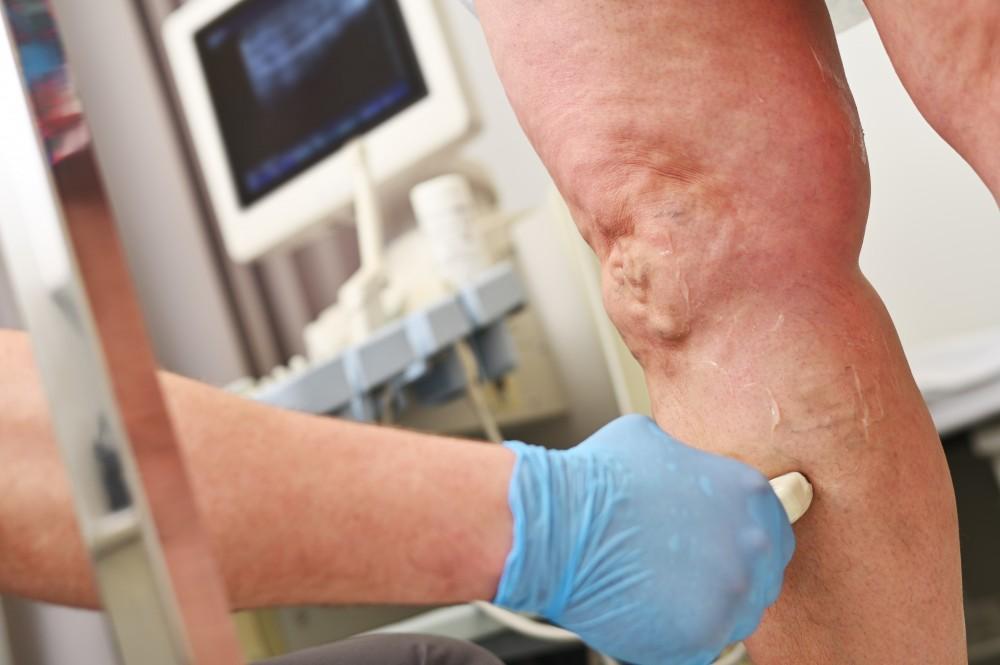
Are My Varicose Veins a Health Concern?

It’s no secret that varicose veins pose cosmetic concerns. However, they’re so much more than a cosmetic issue. These swollen and twisted veins can signal underlying health concerns and shouldn’t be ignored.
While they often appear on the legs and can cause discomfort or aching, the real concern lies in what they may indicate about your circulation.
Take a moment as board-certified phlebotomist Dr. David T. Jacobs explains the hidden health concerns of varicose veins and how our South Shore Vein and Aesthetic Medicine team can help address the health and appearance of your veins.
Why do varicose veins form?
Inside of your veins, you have one-way valves. These valves serve an important purpose: as your blood returns from your legs back to your heart, the valves help keep the blood moving up rather than flowing backward.
Varicose veins form when valves in your veins weaken. When that happens, it means that the blood traveling up your legs (back to your heart) may flow backward, pool, and develop those tell-tale lumps and bulges.
So, what makes those valves weaken? Chronic venous insufficiency. Also known as venous reflux, venous insufficiency means your valves aren’t working correctly. Weight challenges, pregnancy, and leading a sedentary lifestyle can increase your risk of venous reflux.
The dangers of varicose veins
Varicose veins can make your legs feel heavy or achy. Some people may also experience cramps.
Beyond these symptoms, varicose veins can lead to other complications like blood clots or deep vein thrombosis (DVT). Research indicates that people with varicose veins have a fourfold increased risk of developing DVT within 7.5 years. DVT can be particularly dangerous if the clot breaks loose from the veins in your leg and travels to your lungs—a pulmonary embolism.
Pulmonary embolisms from varicose vein-related DVT are rare (since varicose veins are typically close to the surface of your skin), but they can happen if your varicose veins are severe.
You might also notice skin changes such as:
- Stasis dermatitis (red skin that weeps and forms crusts)
- Lipodermatosclerosis (thick and hard skin that develops on your calves and ankles)
- Skin ulcers
If you experience pain, swelling, heaviness, or skin changes around your varicose veins, talk to us. Dr. Jacobs can recommend treatments to address chronic venous insufficiency and the varicose veins that result from it.
How to improve your vascular health
Noninvasive treatments, such as compression stockings, lifestyle changes, or minimally invasive procedures, can help manage the condition and improve vascular health.
Exercise can go a long way in preventing future varicose veins from developing. When you walk, your calf muscles squeeze your veins and help keep your blood flowing back to your heart.
Besides walking, other good exercises for your vascular health include biking, yoga, and swimming.
Treating varicose veins
The good news is that varicose veins can be treated. Treatment seals off (or removes) the affected veins so that blood flows through other, healthier veins.
With dual board certifications in radiology and phlebology (vein medicine), Dr. Jacobs understands the health concerns of varicose veins and the treatments that improve the health of your veins.
At South Shore Vein and Aesthetic Medicine, Dr. Jacobs offers several different treatments for venous issues, including:
- Endovenous laser therapy: a non-surgical treatment that uses light energy to close off problematic veins
- Microphlebectomy: a technique that requires only a tiny incision to physically remove problematic veins
- Varithena™: a foam medication used to treat varicose veins by collapsing the diseased veins, allowing blood to be rerouted to healthier veins. It is minimally invasive, administered by injection, and typically requires little to no downtime.
If you have concerns about varicose veins — either cosmetic concerns or health concerns — don’t hesitate to visit us in Rockville Centre, New York. Give us a call at 516-865-1234, or use our scheduling tool to book your consultation.
You Might Also Enjoy...


Facial Veins: Causes, Treatments, and How to Get Rid of Them

Hand Vein Treatment: How to Restore a Youthful Look to Your Hands

Are Varicose Veins Genetic? What You Need to Know About Hereditary Vein Issues

How to Get Rid of Varicose Veins: Top Treatments for Smooth, Healthy Legs


